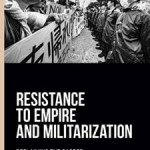CSSR Statement regarding Congress 2020
March 26, 2020
Click here to download text as PDF file
Dear Colleagues,
It is with regret that CSSR announces its decision to withdraw from Congress 2020. On March 18, 2020 the Canadian Federation for the Humanities and Social Sciences announced its plan to move forward with Congress 2020 as a virtual conference, in response to the COVID-19 pandemic. All professional associations and societies have been asked to let CFHSS know by March 27, 2020 whether or not they will participate in the online conference.
This move to a virtual Congress has several important consequences to our community members, outlined below. CSSR held an emergency meeting March 24, 2020 to discuss the plans for an online conference and have decided unanimously to withdraw our participation this year. We hope to build on the conference programming that has been done to date for next year’s conference and will keep our members and participants informed as those details unfold.
We will hold our AGM as planned on Saturday May 30, 2020 from 14h00-16h00 EST via Zoom. Details will be circulated in the coming weeks.
The decision to move to a virtual platform, without consultation with member societies, ignores the significant harms and negative impacts this decision holds for many of our community members. They are as follows.
Systemic Issues:
As identified by the Black Canadian Studies Association in their withdrawal letter, moving the conference online further exacerbates systemic disadvantages within the academy for black and Indigenous scholars. This year’s theme was intended to provide constructive, and challenging, space for redress of ongoing experiences of discrimination and disadvantage. Moving a conference about anti-black racism and settler colonialism online perpetuates the violence experienced by the communities who have fought to bring these issues to the fore – who have fought for this theme.
Online mediums additionally disadvantage members of the academic community for whom access to systems and supports to engage in these virtual platforms might also be limited; this concern has been expressed by CDSA and CSA, among others, in their withdrawal letters.
Pragmatic Issues:
While a virtual conference might facilitate participation from some attendees who could not travel otherwise, it will decrease participation from many others. With stay at home orders in place across the country, everyone is contending with family and work (and all other components of daily life) in one space. These are often stressful experiences, including the negotiation of child minding, work, conference attendance, etc.
Conferences serve as spaces to network and develop professional contacts, in addition to presenting one’s work and receiving peer and collegial feedback. There will be a negative impact on presenters, for whom audience engagement and participation will be limited (if at all). A virtual conference cannot facilitate the type of engagement expected through conference participation.
This raises a further, critical point of reflection.
Many universities are proclaiming the move to online courses and teaching in the wake of the COVID-19 pandemic have been ‘successful’, suggesting that online platforms for academic teaching and learning are ‘easy to use’ for the academic community.
These statements ignore the significant challenges faced by students who have been forced out of residence and have no place to live; faculty and staff who are negotiating the use of technology while also emotionally supporting their students, and their own families; the reality that not all members of our academic community are privileged to have the technology, or technological capacity, to easily engage with the virtual platforms offered; and fully ignores the emotional trauma and stress that the pandemic has generated for many people, let alone the combination of that stress with the burdens imposed by trying to ‘easily’ engage online without technical, financial, familial or other supports.
As we all learn to adjust to our new environment, where our notion of home is significantly transformed, all of these considerations should be at the forefront of decision making for our communities.
Moving academic teaching and learning online, moving conference platforms online, do not consider the exclusionary experiences generated by these decisions and the impact of that exclusion on our peers, colleagues, students, friends and family.
This letter is being signed on behalf of the CSSR Executive. I want to take this moment to acknowledge the incredible, ongoing and tireless efforts of these individuals who come together as community for our members: Alyshea Cummins, Michelle Folk, Paul Gareau, Qamer Hameed, Ruby Ramji, Samiksa Love, Sana Patel, Sarah Wilkins-LaFlamme, Sharday Mosurinjohn, Ted Malcolmson.
We look forward to continuing to engage and collaborate with our members, in preparation for our AGM in May and throughout the years to come.
Sincerely,
Heather Shipley, PhD, LLM President/Présidente
On behalf of:
Canadian Society for the Study of Religion Société Canadienne pour l’Étude de la Religion @cssr_executive
https://www.cssrscer.ca/



